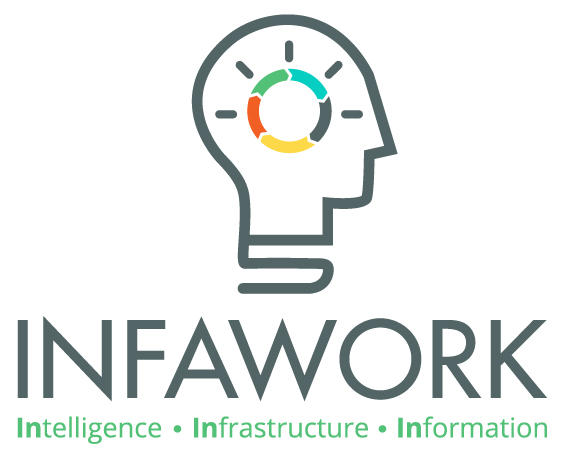Choosing the right sales CRM (Customer Relationship Management) system is crucial for the success of any sales team. With thousands of options available, it’s essential to conduct thorough research to find a platform that aligns with your business needs. A well-chosen CRM can streamline sales processes, improve customer relationships, and boost overall productivity. Key Takeaways Understanding Sales CRM and Its Importance Definition of Sales CRM A Sales CRM, or Customer Relationship Management system, is a tool designed to help businesses manage their interactions with current and potential customers. It centralizes customer information, tracks interactions, and facilitates the management of sales processes. This system is essential for maintaining organized and efficient sales operations. Key Benefits of Using a Sales CRM Implementing a Sales CRM offers numerous benefits, including: Sales CRM systems provide a gold mine of information for businesses looking to close more sales at every stage in their pipeline. Common Features of Sales CRM Sales CRMs typically come with a variety of features designed to support sales activities, such as: These features enable sales teams to work more efficiently and effectively, ultimately driving better sales outcomes. Identifying Your Business Needs Assessing Pain Points Begin your CRM selection process by considering your company’s obstacles and why your current solution isn’t working. Initially, small business owners choose a CRM system to replace a spreadsheet and better manage customer data, like contact information. But you may pinpoint other business processes a CRM can improve, from customer service activities to sales management. Setting Clear Goals Create a short list of the CRM features you must have. Understanding what you need can help you identify any software that’s just too limited. You should also consider a second tier of features that would be nice to have but aren’t crucial. During this process, gather feedback from your team about what they need ― remember, they’ll be using the CRM software so it should meet their expectations. Involving Team Members The most important things before committing to a CRM software is to map out the needs and expectations of your business and your sales team. Evaluate what management tools and programs you are currently using and how they are used, is it: Bold: Ensure the CRM meets your team’s expectations. Consider the following business objectives: Essential Features to Look for in a Sales CRM When choosing CRM software, consider the following features: Sales Pipeline Management Sales pipeline management is crucial for tracking the progress of deals through various stages. A robust CRM should offer visual pipelines that allow sales teams to easily manage and follow up with potential customers based on their position in the sales funnel. Integration Capabilities Integration capabilities are essential for ensuring that your CRM can seamlessly connect with other tools your business uses, such as business phone systems, project management, and collaboration tools. This helps in creating a unified workflow and reduces the need for manual data entry. Automation Tools Automation tools in a CRM can significantly boost your team’s productivity by automating repetitive tasks such as email marketing, workflow management, and customer support ticketing. This allows your team to focus on more strategic activities. Try INFAWORK CRM for free today! It is easy to use and integrate with any business. Identifying your must-have CRM features is a critical step in the selection process. Make sure to align these features with your business needs and goals. Budgeting for a Sales CRM When budgeting for a Sales CRM, it’s crucial to balance cost with the value it brings to your business. Leverage your monthly sales budget as a tool for continuous improvement and ensure that the investment aligns with your business goals. Researching and Comparing CRM Platforms Conducting Market Research Start by researching CRM platforms that align with your business needs. CRM platforms are evolving all the time as technology improves, so make sure you’re up to date on which vendors are keeping up with the cutting edge of the technology and which are falling behind. Consider the types of integrations CRM platforms provide with other business software you may already be using. Reading Reviews and Case Studies Check out review websites and customer reviews. Look at the differences between plans to ensure the one that fits your budget has your must-have features. If you have relationships with other businesses that are similar to yours or have similar needs, ask them about the CRM software they chose. This insight may help you determine whether your shortlist includes the best providers available. Utilizing Free Trials Complete the following tasks for each CRM platform on your shortlist: Encourage employees to navigate the knowledge bases and trial software. Implementing Your Chosen Sales CRM Implementing a CRM involves a few more hurdles that you’ll have to jump over, such as customizing your CRM software and integrating it. But once it’s up and running, and you’ve automated as many tasks as you can and tweaked it just right, your salespeople will appreciate it — because most of them probably just want a simple, strong solution that supports them doing what they’re great at: selling. Common Mistakes to Avoid When Choosing a Sales CRM Overlooking User Experience One of the most common mistakes is overlooking user experience. If the CRM is not user-friendly, your team will struggle to adopt it, leading to wasted time and resources. A complex interface can result in a steep learning curve and customization demands that eat into your schedule. Ignoring Scalability Another critical error is ignoring scalability. Your business will grow, and your CRM needs to grow with it. Choosing a CRM that cannot scale can lead to unsuccessful CRM implementation, which can be disappointing and counterproductive. Neglecting Customer Support Neglecting customer support is a mistake that can have severe consequences. Customer support might come with extra fees, and without premium service, you could face limited hours and long wait times. This can be particularly problematic if you encounter issues that need immediate resolution. About 70% of CRM projects fail because of poor communication, misaligned goals, and lack of the right team. Rushing into trendy tech without a solid..



